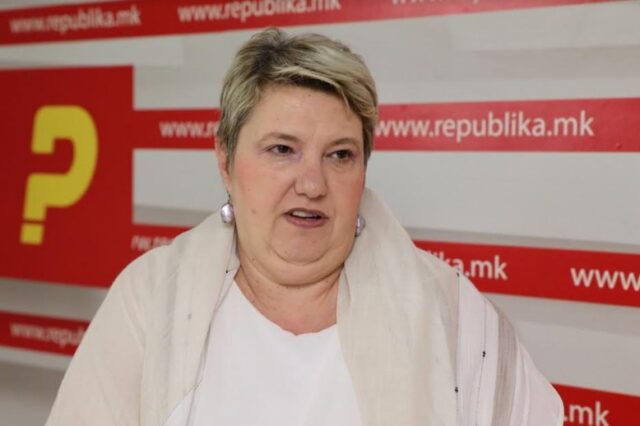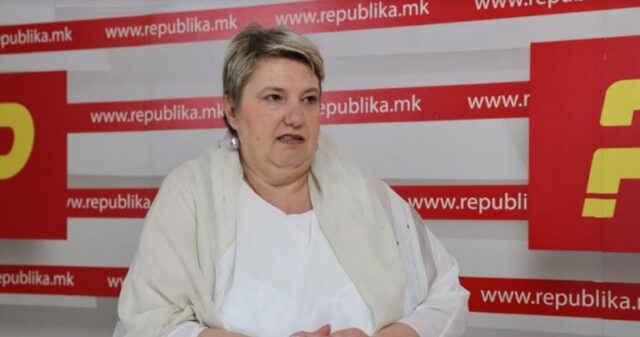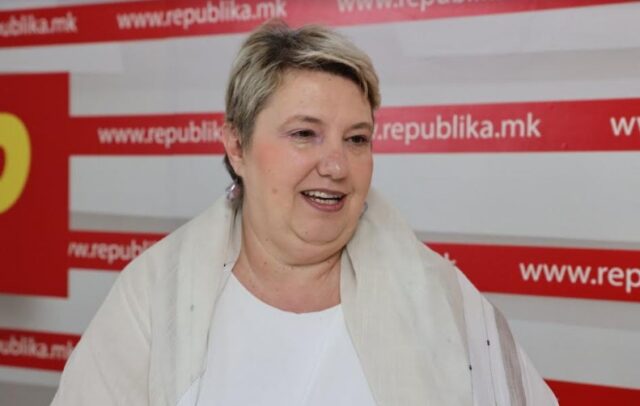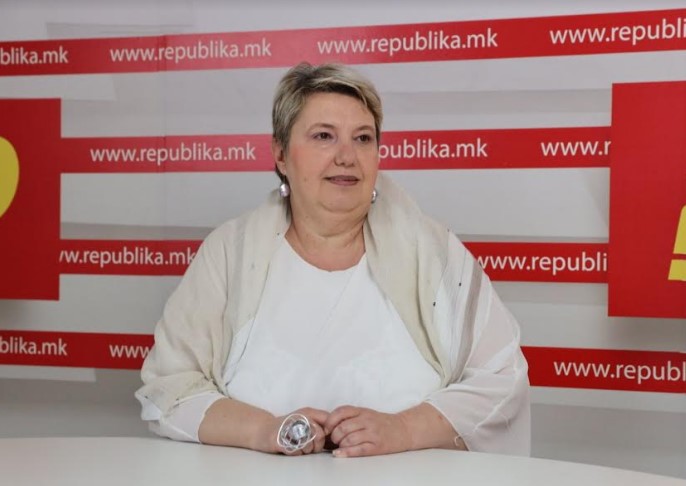The biggest problem in the Declaration on the Macedonian language is that it is claimed that it has its own historical and temporal continuity, but also that the dialect expansion is limited within the state framework of today’s Republic of Macedonia, with which we practically give up the dialect expansion of the Macedonian language, which is much wider than state borders, Professor Elka Jaceva Ulcar analyzes in an interview with “Republika”.

With this, it is as if we are going against what Professor Blaže Koneski said, who said that the Macedonian language is our only complete homeland. He believes that the Macedonian language is wider than the country of Macedonia, explains the professor.
According to her, with the statement that we limit ourselves only to the dialects within Macedonia, it turns out that we are renouncing our Pirin and Aegean dialects as well as the dialects we have on the western border in Albania and Kosovo.
Ulcar has no doubts that with the agreements with Greece and Bulgaria we gave up on the minorities as speakers of the language.
If you have given up on minorities it is as if the language does not exist because who will speak it if not the minorities. This is a mistake even with the Good Neighborly Agreement with which we accept that we are renouncing the minority in Pirin Macedonia.

The professor believes that all that is happening to us is the result of the scientific community not being consulted at all.
Despite the existence of the Institute of National History, we set up a history commission to solve historical questions, with only three historians who are not specialists in specific historical periods. As an example, we are solving a question from the Middle Ages, and we have not involved a single Middle Ages expert.
Ulcar believes that it is too late to do anything.
Our neighbors Greece and Bulgaria have created their own expert teams to achieve their goals. Only we in Macedonia have not been asked anything, neither historians nor linguists.
The professor considers the unilateral declaration a joke because it was written unseriously and with spelling mistakes.

There is also an inaccuracy that the Macedonian language was recognized at the third conference of the Commission for Standardization of Geographical Names in 1977 in Athens. That is completely incorrect. That commission deals with toponyms and how they should look on geographical maps. The commission recommended that all toponyms for which there is no tradition for a different name when we write the toponym on a map should be written as close to the original as it is. That commission, which unfortunately we don’t have, but we had it first in the SFRY. At that conference in 1977, with a resolution that referred to the then Serbian-Croatian Cyrillic and the Macedonian Cyrillic, literacy was made, i.e. every Cyrillic letter was translated into Latin.
According to her, former Prime Minister Alexis Tsipras used this to brag that they recognized the Macedonian language, which is not true at all.
The Macedonian language has been recognized by the United Nations since Macedonia was part of Yugoslavia, and there are no doubts here.
Listen to the entire conversation in the video interview conducted by Igor Caveski





Comments are closed for this post.